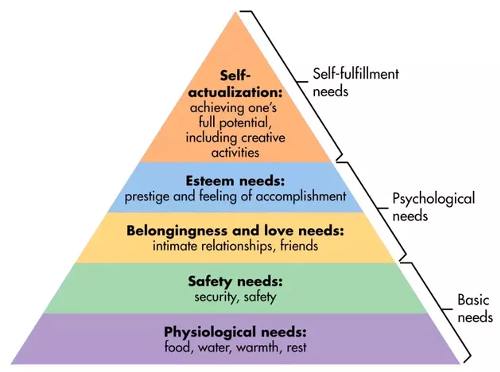As lean practitioners, we often talk or hear about respect for people, but we don’t have a common understanding of what that means. Many people think it is about being nice, which is essential but merely scratches the surface of what respect for people means and the role it plays in ensuring people are both satisfied and high performing. The Toyota Way 2001 Guiding Principles define Respect for People as including both respect and teamwork:
- Respect: We respect others, make every effort to understand each other, take responsibility, and do our best to build mutual trust.
- Teamwork: We stimulate personal and professional growth, share the opportunities of development, and maximize individual and team performance.
The risk to leaders who misinterpret showing respect as being nice is that they will not give people the feedback they need to learn and improve. Failing to deliver honest corrective feedback does not align with the teamwork principle of allowing people to develop and maximize their performance. To show respect when offering critical feedback, leaders must first seek to understand the situation. A leader shows respect and enriches the learning opportunity by asking a person about a problem or project. Over time, such interactions provide the environment that develops a person’s capabilities, which in turn, maximizes individual and team performance.
Still, how to show respect can be a challenge under normal business conditions, but during a pandemic, it can be especially hard. Thinking through Maslow’s hierarchy of needs can be a helpful framework for meeting that challenge.
A Framework for Understanding Needs
If the foundation of showing respect for people is understanding their current situation and readiness for growth, Maslow’s hierarchy of needs offers a framework that can help you assess it.
Maslow’s Hierarchy of Needs (1943)

This framework illustrates that people need to have their basic needs (in the bottom part of the pyramid) met before they are in a position to focus on trying to fulfill needs associated with learning and development (in the top part of the pyramid). Once our basic physiological needs — food, water, warmth, and rest — are met, we can begin to focus on meeting our need for safety. Once we know we’re safe, we can pursue our psychological needs of belonging, love, and esteem. We get belonging and love through our relationships with people and esteem through what we accomplish. When these needs are met, we can turn our attention to self-fulfillment, our need to attain self-actualization by achieving our full potential, which includes participating in creative activities.
Seek to Understand
Lean thinking is a system designed to support people who have had their basic and psychological needs met and can focus on their self-fulfillment needs. Before the pandemic, most, but not all, people had their basic needs met. Our new reality has forced many of us to return our focus toward meeting our basic needs. Some of us have been lucky to be able to recalibrate relatively quickly, which allows us to focus on self-actualization and growth. But others — perhaps many people you’re leading — are still working on getting their basic or psychological needs met.
Further complicating the situation, people are likely to oscillate between an ability to focus on growth and the need to focus on psychological and basic needs as we navigate through this pandemic.
Leading with respect in this environment requires that you acknowledge that people are likely to be in a different space than they were a couple of months ago and adjust how you interact with them. It can also be helpful to realize that when people resist taking action on feedback, they often are worried about meeting their basic needs. You can’t focus on public health safety measures if you can’t afford food. If you think staying home is an over-reaction to the pandemic, you will continue to socialize to meet your psychological needs. Taking the time to seek to understand someone’s needs is how leaders show respect for them.
As we transition to our new normal, leaders must recognize that they have no idea how this pandemic is impacting their workforce. It is best to err on assuming that they are worried about meeting their basic and psychological needs, which is especially critical as we are interacting more virtually. Online interactions can make communication and efforts to understand what others are going through more difficult. When we were in the same facility pre-pandemic, we had more opportunities to meet around the coffee pot or water cooler to have informal conversations that facilitate us knowing how each other are doing. Now even if we are in the same facility, while we are trying to maintain six feet of physical distance, those same conversations aren’t happening.
During the pandemic, leaders must be more deliberate in their efforts to understand people’s needs and show what they are doing to support them. One countermeasure is to schedule more one-on-one meetings to replace the informal conversations that aren’t happening. These conversations need to occur more frequently in times of uncertainty and fast-changing conditions. Another countermeasure is to dedicate time in your huddles, stand-ups, obeyas, etc., to talk about team members’ feelings of physical and psychological safety. While these tactics are essential during a pandemic, they are effective ways to show respect at any time.
You don’t need to fix people’s problems, but you need to create an environment that enables people to share where they are and shows that you care. It can be as simple as asking people how they are doing, as long as you are authentically asking and responding with care. Ask about their concerns and how you can support them. Remember, especially now, during the pandemic, employees’ needs don’t start and stop in the work environment. Inquire about what is happening with their family, friends, and in their community. Ask about how the pandemic has impacted them and their ability to have their needs met.
Tell and Show People What You are Doing
If there is ever a time to over-communicate and be transparent, that time is now. If you aren’t showing people, including employees, customers, and suppliers, what you are doing to keep them safe, they will likely assume you are doing nothing. Consider, have you:
- asked people how they’re holding up to the stresses brought on by the pandemic?
- created conditions that allow for six feet of physical distance throughout the workplace?
- made personal protective equipment available?
- put into place other safety measures?
- shared what you have done and didn’t do to ensure the safety of employees, customers, and suppliers?
- explained the rationale behind your decisions?
You show respect for people by sharing what you are doing to keep them safe, and by showing them that you care about them as people, not only as employees.
Only when you know that people are meeting their basic and psychological needs should you focus on helping them achieve self-actualization through supporting their growth. Getting to the place to support this growth is how we ultimately want to show respect, and it is okay that many organizations and people aren’t currently able to do that as we focus on meeting our basic needs.






